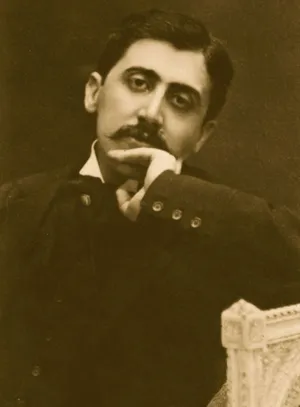962-7983-18423+
24/7 دعم

Marcel Proust (July 10, 1871 – November 18, 1922) was a French novelist who lived in Paris during the late 19th and early 20th centuries. His most notable works include the seven-part series of novels, À la recherche du temps perdu (In Search of Lost Time), published between 1913 and 1927, which are now considered among the most famous works of French literature. His writings explore the influence of the past on the present. Proust was also a critic, translator, and social commentator.
Proust was born near Paris in 1871 to a wealthy family and studied law and literature. His social connections brought him into the luxurious guest rooms of the nobility. He wrote a number of articles for Parisian newspapers. He also published stories such as “The Pleasures and the Days” (1896). He suffered from asthma since childhood and became socially withdrawn by 1897 as his health deteriorated. The death of his mother in 1905 also made him more isolated. Proust was half-Jewish and strongly supported Alfred Dreyfus.
Russell led the British “revolution against idealism” in the early 20th century. He is considered one of the founders of analytic philosophy, along with his predecessor Gottlob Frege and his student Ludwig Wittgenstein, and is considered one of the most important logicians of the 20th century. He co-authored Principia Mathematica, an attempt to explain mathematics by logic, with A. N. Whitehead. His philosophical essay On Denoting is considered a paradigm in philosophy. His work still has a visible influence on logic, mathematics, set theory, linguistics, and philosophy, particularly the philosophy of language, epistemology, and metaphysics.